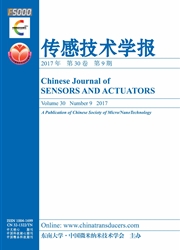

 中文摘要:
中文摘要:
如何实现能量的高效利用,延长网络的生命周期一直是无线传感器网络研究的热点。在传统的路由协议中,靠近基站的节点由于要转发其它节点的数据容易过早耗尽能量而失效。本文基于传感器节点传输功率可调这一假设,提出了一种负载均衡的跳跃式路由协议(LBR)。协议中每个节点维护K跳的路由表。在需要发送数据时,剩余能量较少的节点将数据发送给下一跳节点,而剩余能量较多的节点可以跨越多跳进行数据传输,从而均衡了节点的能量消耗。模拟结果表明,采用该协议建立的路由,不仅具有延时小,数据传送的路径长度短,维护简单等优点,并且能够改善网络的负载均衡,极大地延长网络的生命周期。
 英文摘要:
英文摘要:
How to implement the efficient utilization of energy and lengthen the network lifetime has always been a hot research topic in wireless sensor networks. In traditional routing protocols, the nodes closer to the sink are burdened with heavy relay traffic and tend to die early. In this paper, based on the assumption that the transmission power of sensor nodes is adjustable, a Leaping-Based Routing Protocol (LBR) is proposed. In the LBR protocol, each node maintains a K-hop routing table. While sending data, the node with less energy can transmit data to the next-hop node, and nodes with more energy left may span multi-hops to send data, which consequently balances the energy consumption of nodes. The simulation results show that routes established according to this protocol is of low delay, short transmitting routes, and can be maintained easily. Furthermore, this protocol can improve the load balance of the network and lengthen the lifetime of the network significantly.
 同期刊论文项目
同期刊论文项目
 同项目期刊论文
同项目期刊论文
 期刊信息
期刊信息
